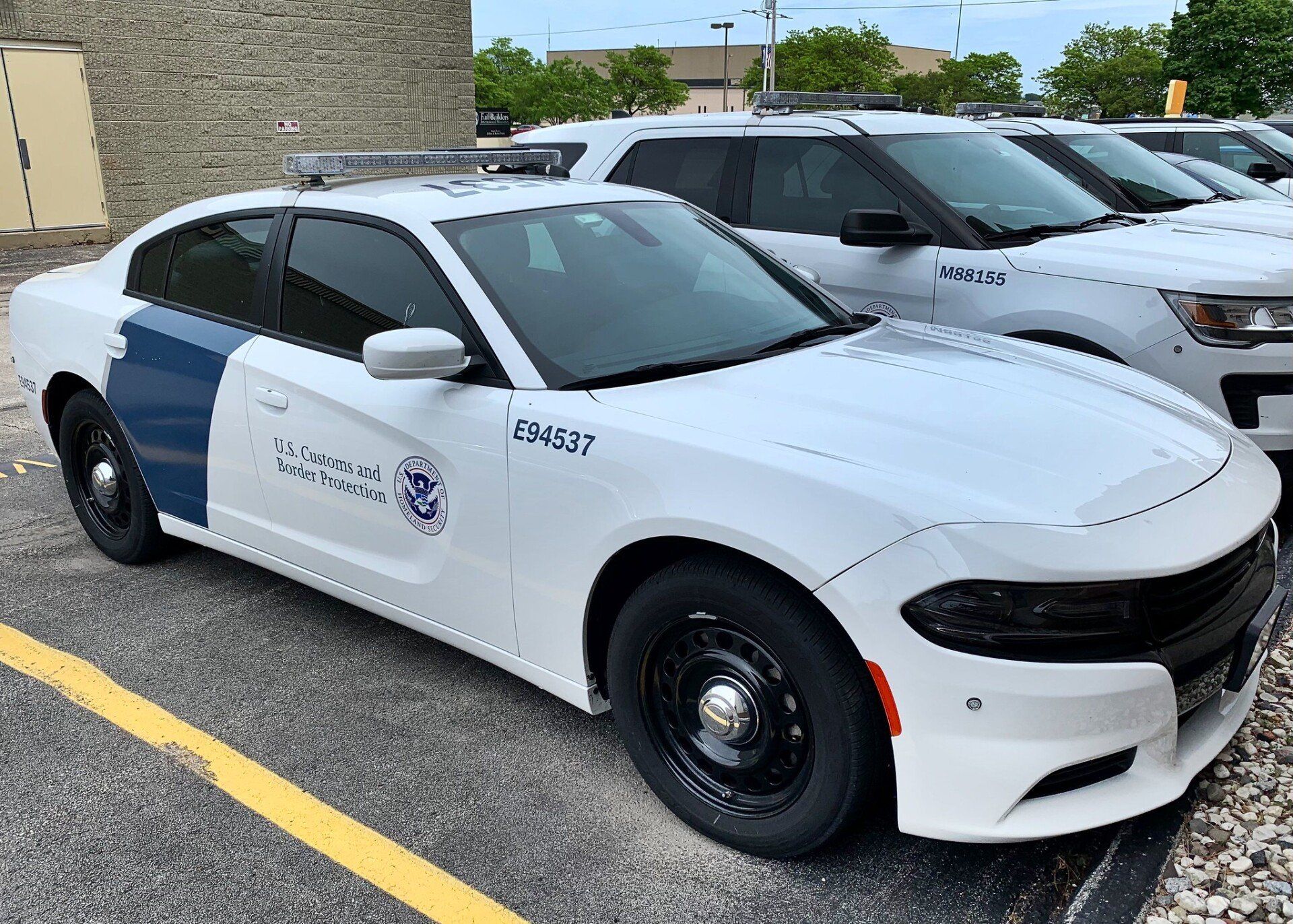USCIS Announces FY 2021 Accomplishments

Release Date
12/16/2021
WASHINGTON — Today, U.S. Citizenship and Immigration Services is releasing preliminary fiscal year (FY) 2021 agency statistics and accomplishments. These preliminary statistics highlight important immigration trends and illustrate the work accomplished by USCIS in FY 2021. The agency will publish final, verified FY 2021 statistics in January 2022.
“I’m immensely proud of the USCIS workforce and for their achievements in a year of many challenges and rebuilding. From responding to the COVID-19 pandemic and addressing processing delays to enacting numerous operational and policy changes in response to executive orders from the Biden-Harris Administration, FY 2021 marks a year of growth and renewed vision for our agency,” said USCIS Director Ur M. Jaddou.
“In the upcoming year, we will continue to serve the public with compassion and reflect America’s promise as a nation of welcome and possibilities for all. As we administer our nation’s immigration system as an engine of American strength, we will adjudicate requests with fairness, efficiency and integrity.”
Addressing Challenges
- Fiscal Health: USCIS fiscal health has improved significantly during FY 2021 as a result of measures the agency implemented to reduce spending, as well as an increase in Immigration Examinations Fee Account revenue receipts, which have exceeded projections.
- Temporary Flexibilities in Response to COVID-19: The health and safety of our workforce and those we serve remained a top priority. USCIS continued temporary flexibilities related to COVID-19, including allowing more time for responses to certain USCIS requests and notices.
- Employment-Based Adjustments: USCIS faced the unprecedented challenge of processing over 237,000 employment-based Green Card applications—not only the agency’s usual 115,000, but an additional 122,000 immigrant visa numbers that the Department of State was unable to process in FY 2020 due to the COVID-19 pandemic. By the end of FY 2021, USCIS approved over 172,000 employment-based adjustment of status applications, an increase of 50% above the typical baseline.
- Processing Delays: Across the agency, the volume of pending cases increased as well as the associated processing times. USCIS has made significant strides in addressing processing delays caused by COVID-19 and other factors while responding to new executive orders. USCIS made significant strides in addressing processing delays in the following ways: reusing biometrics for 2.5 million applicants since March 2020; reducing the number of pending biometrics appointments from 1.4 million in January 2021 to 155,000 as of the end of September; and fully eliminating the “front-log” of cases awaiting intake processing (which was more than 1 million receipts in January 2021 and was eliminated in July) by expanding staffing and overtime at our Lockbox facilities.
Response to Executive Orders
- Breaking Down Barriers: USCIS continues to identify efficiencies and remove barriers to benefits and services pursuant to executive orders (EO) 14012 and 13985 and received over 7,400 comments to its Request for Public Input, “Identifying Barriers Across U.S. Citizenship and Immigration Services (USCIS) Benefits and Services,” which closed on May 19, 2021. USCIS has already announced a number of updates responsive to comments received, including reverting to prior criteria for interviewing petitioners requesting derivative refugee and asylee status for family members, clarifying that it will consider E and L dependent spouses to be employment authorized incident to status and that H-4, E, and L dependent spouses may qualify for the automatic extension of their employment authorization, and providing deferred action and work authorization for petitioners living in the U.S. with pending, bona fide U nonimmigrant status petitions and who merit a favorable exercise of discretion. USCIS continues to review and consider comments received in response to the Request for Public Input, alongside other feedback received, such as in stakeholder engagements.
- Promoting Naturalization: During FY 2021, USCIS welcomed 855,000 new U.S. citizens, including derivative citizens. Despite the challenges posed by the COVID-19 pandemic, with the help of video-facilitated interviews and pandemic-safe interview procedures, USCIS continued to process naturalization cases at pre-pandemic levels during FY 2021 and completed approximately 895,000 naturalization applications, conducted more than 52,000 video-facilitated interviews, and hosted more than 40,000 naturalization ceremonies. USCIS continues to promote and improve access to naturalization pursuant to EO 14012 and the Interagency Strategy for Promoting Naturalization [PDF, 3.77 MB] (PDF, 3.77 MB), which was released publicly on July 2, 2021. USCIS has taken a number of steps to reduce barriers to naturalization and promote citizenship, including phasing out the 2020 version of the Naturalization Civics Test and reverting back to the 2008 Test on March 1; decreasing the pending naturalization case queue by approximately 14% from January to September 2021; conducting video interviews of overseas military members and qualifying family members, as well as video naturalization ceremonies, with the assistance of the Department of Defense; reusing approximately 838,000 naturalization applicants’ biometrics since March 1; relaunching the Outstanding Americans by Choice initiative; and releasing $10 million to 40 citizenship grantees for FY 2022.
- Public Charge: DHS published the Public Charge Vacatur Final Rule in the Federal Register on March 15, 2021, which removed the regulatory provisions promulgated by the 2019 Public Charge Final Rule that the Seventh Circuit Court of Appeals vacated on March 9. USCIS released a letter (PDF, 332.11 KB) to interagency partners on April 12, seeking their support in communicating to the public that the 2019 Public Charge Rule is no longer in effect. On Aug. 23, USCIS published an Advance Notice of Proposed Rulemaking (ANPRM) to seek broad public feedback on key considerations associated with the public charge ground of inadmissibility that will help with the development of a future regulatory proposal. As announced in the ANPRM, USCIS conducted a listening session for the general public on public charge on Sept. 14. Resources on public charge, including questions and answers, are available on our website. USCIS hopes to issue its Notice of Proposed Rulemaking on public charge in the near future.
- U.S. Refugee Admissions Program (USRAP) Improvements: USCIS continues to work with the Department of State (DOS) to take steps to improve the efficacy, integrity, security and transparency of the USRAP pursuant to EO 14013.
- Family Reunification Task Force: USCIS continues to serve on the Family Reunification Task Force and established a parole process and approved approximately 100 individuals for parole during FY 2021 to help reunify families separated by the prior administration’s Zero-Tolerance and related policies.
- Expansion of Lawful Pathways from Central America: USCIS and DOS reinstituted and expanded the Central American Minors Refugee and Parole Program (CAM), including the resumption of interviews. In Phase One, USCIS and DOS began processing eligible applications that were closed when the CAM program was terminated in January 2018. In Phase Two, eligibility criteria were expanded for certain U.S. based individuals—to include legal guardians in qualifying categories (such as lawful permanent residence, Temporary Protected Status (TPS), parolees, deferred action, Deferred Enforced Departure, or withholding of removal), and parents or legal guardians with a pending asylum application or petition for U nonimmigrant status—to apply for their children to access the CAM program.
Humanitarian Programs
- Operation Allies Welcome: USCIS set up temporary field offices and mobile biometrics processing stations in eight federally approved facilities to process arriving Afghan nationals and family members who assisted the United States in Afghanistan. At these facilities, Afghan nationals applied for employment authorization and have been referred to resettlement services, if they are eligible. USCIS personnel are adjudicating applications for employment authorization and conducting other immigration processing. During FY 2021, USCIS collected biometrics for more than 52,000 individuals and adjudicated more than 28,000 applications for employment authorization.
- Asylum Processing: This past year, USCIS completed approximately 39,000 affirmative asylum cases, 44,000 credible fear determinations, and more than 4,400 reasonable fear determinations. On Aug. 2, 2021, USCIS opened a new asylum office in Tampa, Fla., in response to an increasing asylum workload in Florida.
- Adjudication by Asylum Officers of Protection Claims after Positive Credible Fear Determinations: On Aug. 20, 2021, a Notice of Proposed Rulemaking was published that would amend regulations so that individuals in expedited removal who are found to have a credible fear of persecution or torture could have their claims for asylum, withholding of removal, or protection under the Convention Against Torture initially adjudicated by a USCIS asylum officer through a nonadversarial proceeding, rather than in immigration court by an immigration judge. If implemented, this rule would allow for more efficient adjudication of the protection claims of individuals who establish a credible fear while in the expedited removal process, while ensuring fairness and safeguarding due process. The 60-day public comment period ended on Oct. 19.
- Refugee Interviews: USCIS expanded its capacity to conduct certain refugee applicant interviews remotely using video-teleconferencing, which enabled USCIS to mitigate the impact of COVID-19-related restrictions on international travel for much of the year. USCIS also deployed officers to 12 overseas locations to conduct in-person initial refugee interviews or to provide support for video interviews conducted remotely from the United States. USCIS interviewed approximately 6,600 refugee applicants in person and over 3,300 refugee applicants remotely in 23 countries.
- Temporary Protected Status: In FY 2021, USCIS began accepting applications and renewals for TPS under new and/or extended designations for South Sudan, Burma, Somalia, Syria, Venezuela, Yemen and Haiti. On July 21, 2021, USCIS publicly launched online filing for initial TPS registration applications for Burma, Somalia, Syria, Venezuela and Yemen. On Aug. 3, when DHS published the designation of Haiti for TPS for 18 months in the Federal Register, USCIS made online filing available for initial TPS registrations. On Aug. 4, DHS announced the extension of the initial registration periods from 180 days to 18 months for initial applicants under the TPS designations for Venezuela, Syria and Burma, similar to the same-length initial registration periods in place regarding applicants from other countries, such as Haiti.
- Deferred Action for Childhood Arrivals (DACA): Since DACA began in 2012, USCIS has approved approximately 835,000 requests for initial DACA and over 2.3 million requests for renewal of DACA, as of Sept. 30, 2021. The median processing time for DACA renewals and related employment authorization applications through Sept. 30, was approximately 54 days. On Sept. 28, DHS published a Notice of Proposed Rulemaking that would preserve and fortify the DACA policy, with a 60-day public comment period that closed on Nov. 29. If finalized as proposed, the rule would codify the existing DACA policy with a few limited changes.
- U Nonimmigrant Bona Fide Determination Process: USCIS announced the U Nonimmigrant Bona Fide Determination Process on June 14, 2021, to address increases in the volume of U nonimmigrant petitions and a growing number of cases awaiting placement on the waiting list or final adjudication. With this initiative, USCIS will be able to provide efficient reviews of U visa petitions and provide work authorization and deferred action to victims of crime in a more timely manner.
Increased Public Engagement
USCIS hosts public engagements on local and national levels involving our community relations officers and subject matter experts. In March 2021, we conducted an agency-wide review of public engagement to reinvigorate our outreach efforts. The review identified key priorities and ways to increase engagement opportunities.
- During FY 2021, USCIS adapted to a virtual engagement environment and had record numbers of attendees for these events.
- USCIS held more than 2,000 virtual engagements with approximately 74,000 attendees, including 2,069 local engagements and 47 engagements at the national level.
- USCIS hosts engagements in English, Spanish, and other languages including Arabic, Haitian Creole, Mandarin, Dari, and Urdu.
- We covered more than 20 topics, including citizenship/naturalization, online filing, TPS, public charge, avoiding immigration scams, Liberian Refugee Immigration Fairness (LRIF), family-based petitions, business immigration, and COVID-19 visitor procedures for local offices.
Online Filing and Tools
The agency’s transition from paper applications to a fully digital filing and adjudication experience continues to be an important priority for USCIS. Consequently, USCIS continues to expand our online filing capabilities.
- USCIS has continued to expand and enhance the self-help tools available to applicants online and through the agency’s Contact Center with the goal of providing more efficient, timely service.
- Through continued outreach and promotion, the number of myUSCIS online accounts grew from 6.1 million in FY 2020 to 9 million in FY 2021, a growth rate of 48%.
- In FY 2021, approximately 1,210,700 applications were filed online, a 2.3% increase from the 1,184,000 filed in FY 2020.
- In FY 2021, USCIS added two forms for electronic filing:
- Form I-821, Application for Temporary Protected Status; and
- Form I-765, Application for Employment Authorization, for:
- Temporary Protected Status applicants seeking employment authorization who have an approved form I-821 (a)(12) or a pending form I-821 (c)(19); and
- F-1 students seeking optional practical training (OPT) if they request employment authorization under one of these categories: (c)(3)(A) – Pre-Completion OPT; (c)(3)(B) – Post-Completion OPT; and (c)(3)(C) – 24-Month Extension of OPT for science, technology, engineering and mathematics (STEM) students.
Increased Data Transparency
USCIS has increased data transparency and availability of new and expanded quarterly reports continues to be an important priority for the agency.
- USCIS has created new quarterly reports for benefit programs, including LRIF that include reporting on receipts broken down by state, gender, as well as fee waiver information.
- For FY 2022, USCIS will be launching a new quarterly report for TPS that includes receipts and approvals for all countries, including new designations from 2021 such as Venezuela and Haiti.
- As part of the efforts to increase naturalization promotion and outreach, USCIS also launched a new webpage outlining key statistics around naturalization highlighting citizenship accomplishment over the last few fiscal years.
For more information on USCIS and our programs, please visit uscis.gov or follow us on Twitter, Instagram, YouTube, Facebook and LinkedIn.
Last Reviewed/Updated:
12/16/2021













